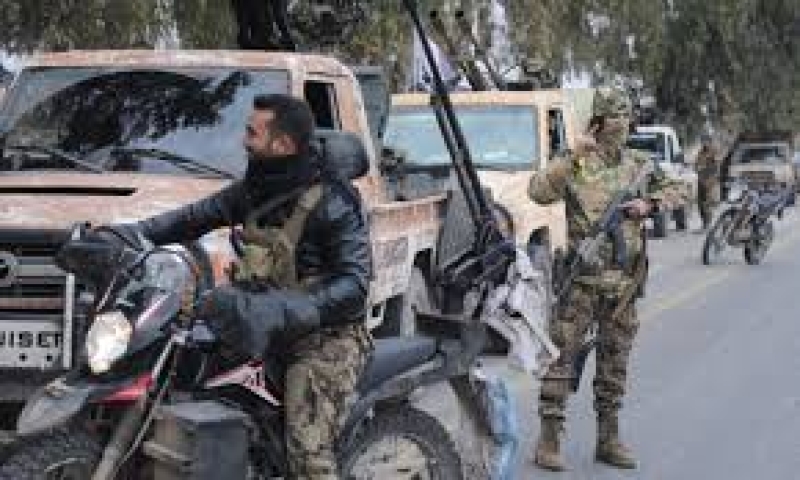- Bangladesh GDP to Grow 5% in 2026 Amid Rising Price Pressures |
- Thousands Rally at Chattogram Polo Ground Ahead of Polls |
- Gas Shortages Hit Households as Prices Soar in Dhaka |
- Tarique in Chattogram for second phase of election campaign |
- US seeks to befriend Jamaat-e-Islami, reports Washington Post |
Syria Rebels Say 'Entering Damascus' Amid Heavy Clashes

Islamist-led rebel groups, including Hayat Tahrir al-Sham (HTS), declared on Sunday that they had begun entering Syria's capital, Damascus, signaling an escalation in the ongoing civil war. The announcement, made via the group's Telegram channel, claimed that their forces had successfully breached the capital's outskirts and were making inroads into key areas of the city.
Residents of Damascus reported hearing intense gunfire and the sound of explosions, indicating heavy clashes between the rebels and government forces. Several locals spoke to AFP, describing scenes of chaos and fear as the sound of battle echoed through the streets. Some residents expressed confusion and uncertainty, unsure of the situation unfolding around them, as both government and rebel forces vied for control of strategic locations in the city.
The announcement marks a significant moment in the Syrian conflict, as Damascus has long been a symbol of the regime's strength under President Bashar al-Assad. While rebels have maintained strongholds in other regions of Syria for years, their entry into the capital represents a new and dangerous phase in the war.
The Syrian government, led by Assad and supported by Russian and Iranian military forces, has not yet officially commented on the rebel claims, though state media have reported ongoing military operations in the Damascus area. The recent offensive comes after months of escalating tensions in northern and southern Syria, where rebel groups have gained ground, prompting fears of a broader rebellion against Assad’s regime.
The conflict in Syria, which began in 2011 as part of the Arab Spring protests, has since spiraled into a devastating civil war. While the government has regained control over much of the country, large parts remain outside its authority, controlled by various opposition factions. The entry of HTS and other rebel groups into Damascus could shift the balance of power in Syria, reigniting international concerns about the future of the war-torn nation.
The global community is closely monitoring the situation, with numerous countries calling for an immediate cessation of violence and renewed efforts to seek a peaceful resolution to the conflict. However, with both sides deeply entrenched in their positions and external powers involved, the prospects for a peaceful settlement remain uncertain.

